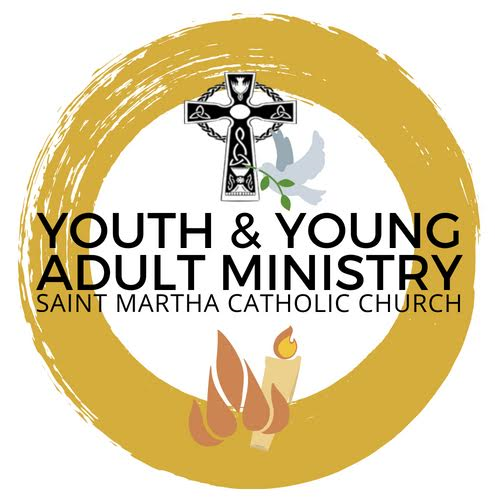
Confirmation Zoom Classes - 2021
Our Last Zoom Confirmation Faith Sharing Class is on the week of May 16-20, 2021.
Make sure you log in 5 minutes before your class begins. All mics and cameras should be turned on.
Year 2 Confirmation Practice
Confirmation Practice is scheduled for May 24, 2021 @ 5pm. Since we only have one practice please arrive on time. Candidates & Sponsors are REQUIRED to attend.
Year 2 Confirmation Requirements
This is to remind our Confirmation Year 2 Candidates to submit their Saint or Confirmation Name Report, Completed & Signed Sponsor Forms, Sponsor Commitment Form, and all other requirements.
Year 2 Mass is May 16, 2021 @ 5pm Youth Mass
Challenge
The Ascension of the Lord– Today is our liturgical celebration of the Ascension of the Lord, when Jesus was taken to heaven on the fortieth day after Easter. In Cycle B, our Gospel is taken from the conclusion of the Gospel of Mark. Scholars have long noted some irregularities about the ending of Mark’s Gospel. There is a natural break in the story line at verse 8, when Mark’s report of the discovery of the empty tomb comes to an abrupt conclusion. This verse reports that the women were so frightened by what they had seen at the tomb that they told no one. This may be the original ending of Mark’s Gospel, but it is also possible that the more complete ending has been lost.
Some manuscripts of Mark’s Gospel, written between the fourth and ninth centuries, include what scholars have termed the Shorter Ending. This is often printed in our Bibles for reference. This ending indicates that the women told their story to Peter’s companions. Scholars believe that this ending is not original to Mark. They theorize that this ending was added by copyists who sought to resolve the original abrupt ending at verse 8.
Other early manuscripts include a Longer Ending that scholars also believe was written by someone other than the Evangelist. Nonetheless, quotations from this Longer Ending are found in the writings of the early Church Fathers, and it was accepted at the Council of Trent as part of the canonical Gospel of Mark. Our Gospel for today’s celebration of the Feast of the Ascension is taken from this Longer Ending.
There are similarities in the reports of Jesus’ Ascension found in the Synoptic Gospels—Mark, Matthew, and Luke. In each case, Jesus assigns his disciples the task of proclaiming the gospel message to the entire world. There are also notable distinctions. In the Gospels of Mark and Matthew, the disciples are sent by Jesus to baptize and to preach. In Luke’s Gospel, however, the commission to baptize is absent. Instead, Jesus directs the disciples to return to Jerusalem to await the fulfillment of his promise to send them the Holy Spirit. Curiously, only the Gospels of Mark and Luke actually report Jesus’ ascension into heaven. Matthew’s Gospel concludes with Jesus’ promise to remain with his disciples forever. Only the Gospel of Mark notes that Jesus ascended to sit at the right hand of God. In noting this, Mark teaches that Jesus’ ascension affirms the glory Jesus received from God after his death and Resurrection.
Even if this ending to Mark’s Gospel was written by someone other than the Evangelist, in the commission that Jesus gives to his disciples, there are elements that are quite typical of Mark’s Gospel. The signs that will accompany belief in Jesus are as vivid as the action performed by Jesus during his ministry. Those who believe in Jesus will be empowered to do what Jesus himself has done. During his ministry, Jesus sent his disciples to preach, to heal, and to drive out unclean spirits. Now they are sent again to do these things and more. From his place with God in heaven, Jesus helped his disciples, and he continues to help us as we try to live as his followers.
Mark 16:15-20
If you can attend Mass in person and you are longing for Him in the Eucharist, then Jesus wants to see you. Come to Mass this Sunday and be transformed by His Word and by the Eucharist.
“Each of you should give what you have decided in your heart to give,
Not reluctantly or under compulsion, for God loves a cheerful giver.”
2 Corinthians 9:7
